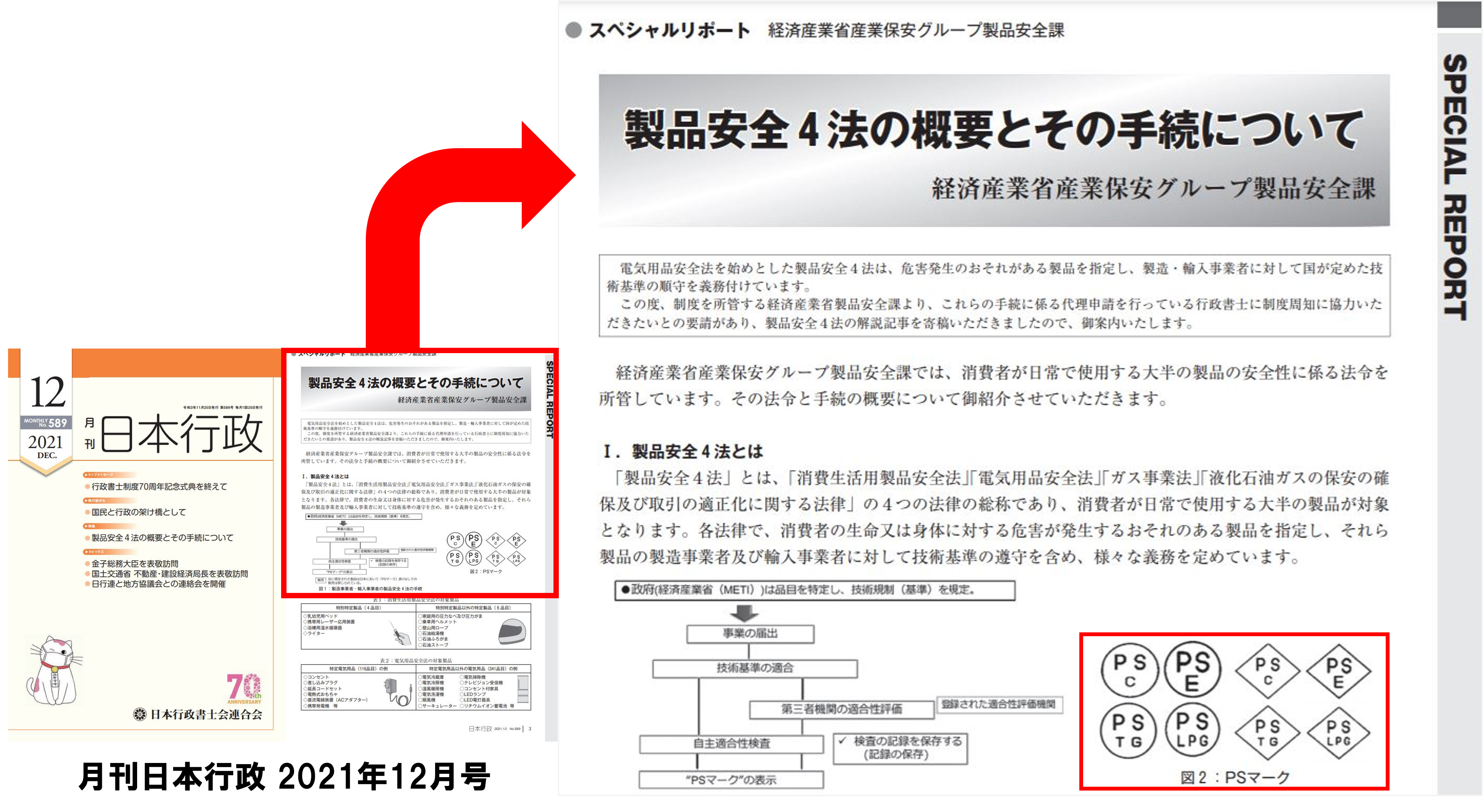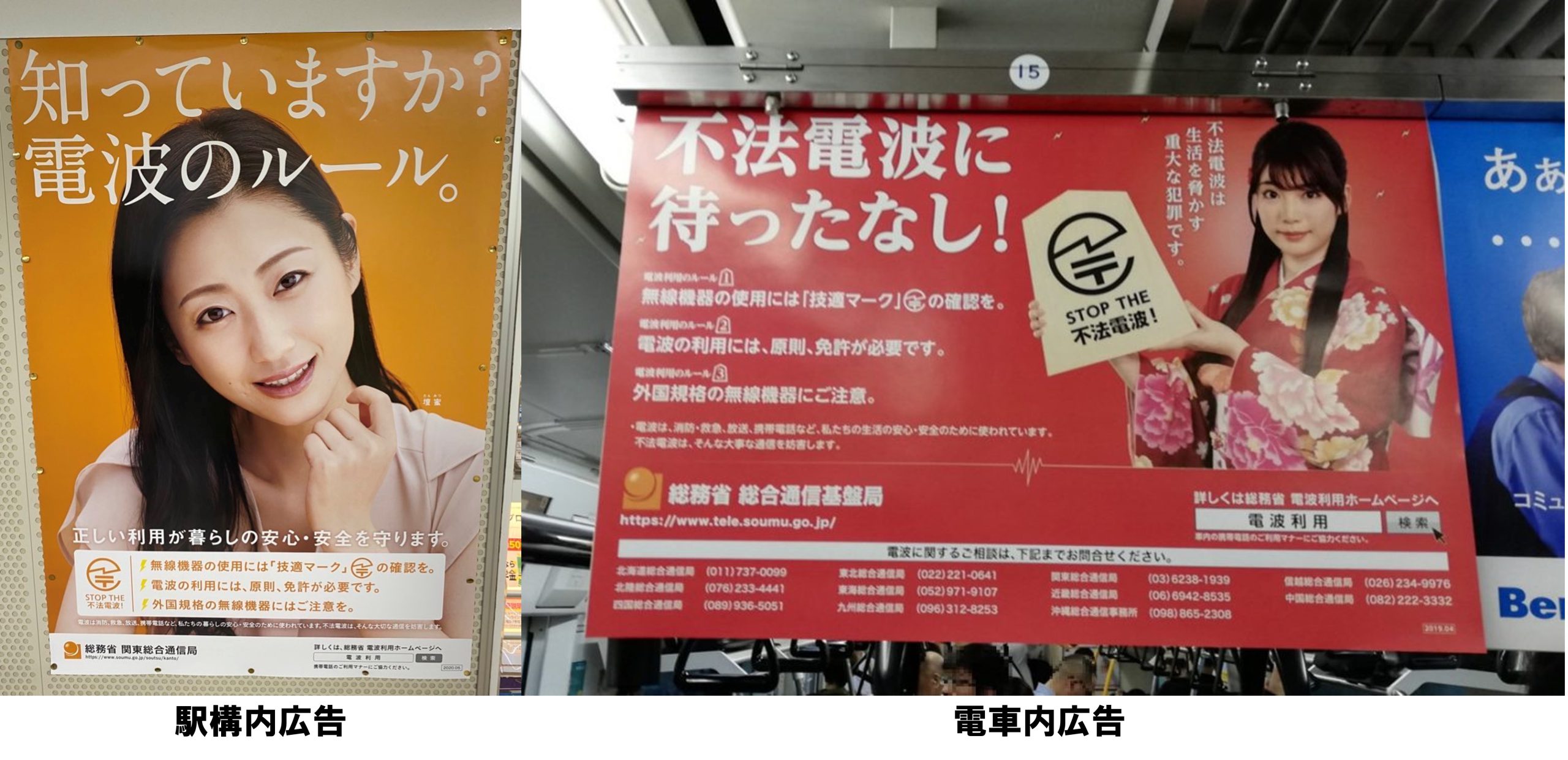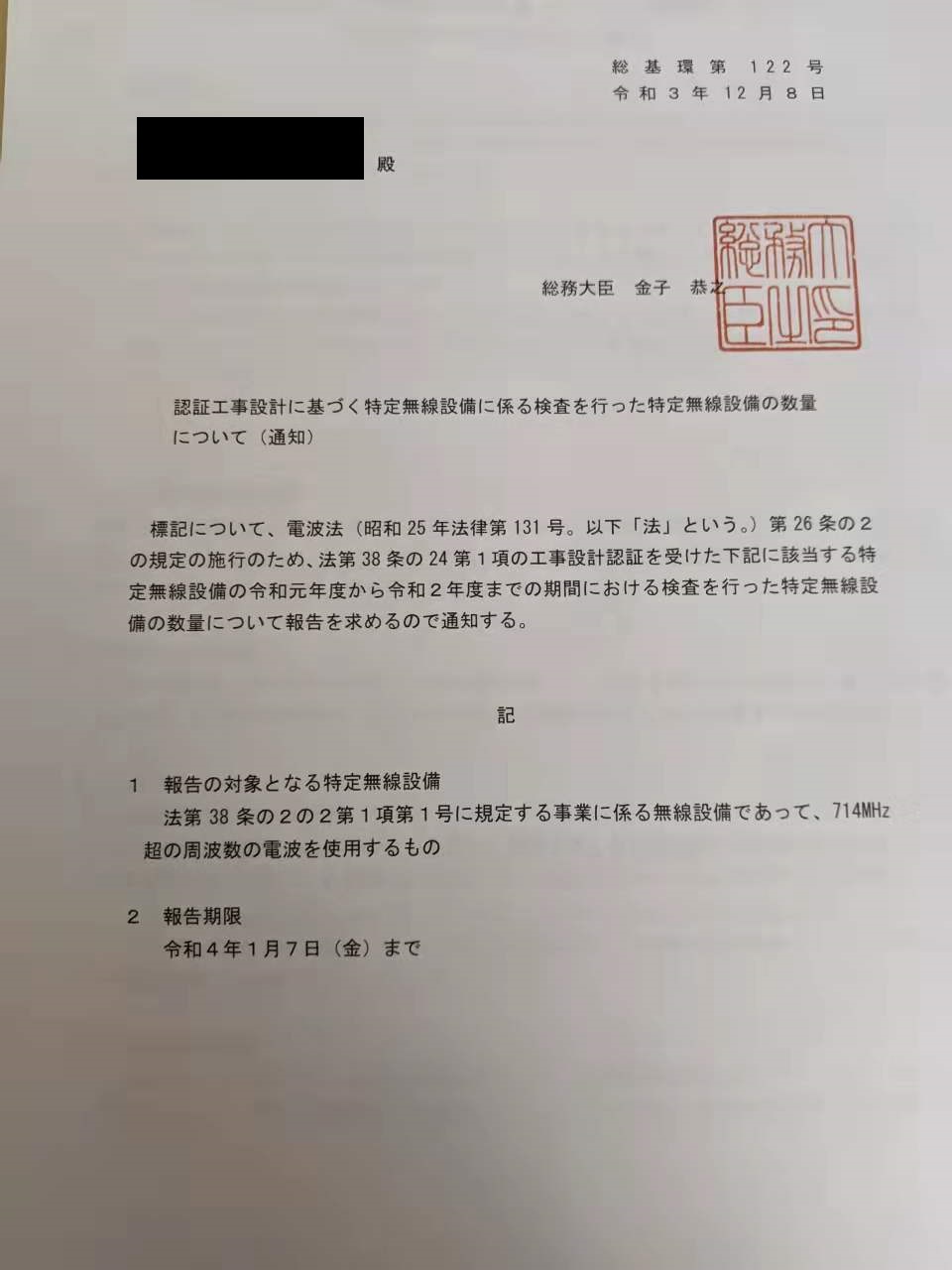The Ministry of Economy, Trade and Industry 'STI's CRACKDOWN ON PSE and PSC is intensifying amid a series of fraud inspections by major companies such as Mitsubishi Electric and Hitachi (Group)
この記事は約 18 分で読めます。 1,179 Views
Hello. It is a hori of the manager.
Recently, the news has been talking about the problem of fraud inspection at several mitsubishi electric plants and the fraud inspection problem of automobile parts by Hitachi Astemo, a subsidiary of Hitachi, Ltd. and a major automobile parts company.
It is undeniable that the safety myth of Japan, which existed a long time ago, is a wind that blows, but of course, while quality could not be guaranteed without proper inspection until before, if the production technology itself is going up, it is not necessary to know whether strict inspection itself is also necessary.
In fact, with regard to Hitachi Astemo, which had made up false inspection data, toyota and Honda, the suppliers of parts, judged that "there is no impact on performance and safety", and said that they will not recall cars.
However, it is easy to imagine that the crackdown will be strengthened in the future, as the brand power as a company will continue to decline, and the Ministry of Economy, Trade and Industry, which has jurisdiction over the safety of the products produced by companies, will not have its own face.
I don't know if it is linked to such a story, but I personally feel that the MINISTRY OF ECONOMY, TRADE and INDUSTRY has strengthened the PSPE and PSC crackdown.
This time, I would like to share with you the background and personal views that the Product Safety Division of the Industrial Safety Group of the Ministry of Economy, Trade and Industry contributed to the "Monthly Nihon Gozai December 2021 Issue" published by the Japan Federation of Administrative Books on the outline of the "Product Safety 4 Act" under the jurisdiction of the section and its procedures.
Contents
- 1 Ministry of Economy, Trade and Industry contributed commentary on licensing work such as PSE and PSC in "Monthly Administration"
- 2 Because it is PSE and PSC that the business operator does not understand correctly, I expect it from the professional teacher! ?
- 3 In the first place, it is not business delivery but inspection arrangements
- 4 Bonus: The Ministry of Internal Affairs and Communications is also tightening its crackdown on the Radio Law
Ministry of Economy, Trade and Industry contributed commentary on licensing work such as PSE and PSC in "Monthly Administration"
The Electrical Appliance and Material Safety Act and other product safety laws designate products that are likely to cause harm and require manufacturers and importers to comply with technical standards established by the government. The Product Safety Division of the Ministry of Economy, Trade and Industry, which has jurisdiction over the system, requested that administrative scrivener who is applying for proxy for these procedures cooperate in disseminating the system, and we have contributed an explanatory article on the Product Safety Act.
There is such an explanation at the beginning, and the preface by the Product Safety Division of the Ministry of Economy, Trade and Industry begins.
The Product Safety Division of the Industrial Safety Group of the Ministry of Economy, Trade and Industry has jurisdiction over laws and regulations concerning the safety of most products used by consumers in their daily lives. We will introduce the outline of the laws and procedures.
Ⅰ. What is the Product Safety Act 4?
"Product Safety 4 Act" is a general term for the four laws of "Consumer Product Safety Act", "Electrical Appliance and Material Safety Act", "Gas Business Act", and "Act on The Assurance of Security of Liquefied Petroleum gas and Optimization of Transactions", and covers most products that consumers use in their daily lives. Each law specifies products that may cause harm to the lives or bodies of consumers, and has established various obligations, including compliance with technical standards, to the manufacturers and importers of these products.

From this point on, the four products and simple legal systems covered by each of the four laws have been explained. By the way, the Consumer Product Safety Act refers to PSC and the Electrical Appliance and Material Safety Act refers to PSE.
When I asked the administrative scrivener why he contributed to a booklet for administrative scrivener called "Monthly Japanese Administration",
There are many products that are not properly processed on the market, so I think that I made recommendations to administrative scrivener who has jurisdiction in the main. If the number is that large, the work might increase as an administrative scrivener (professional business).
It was that.
By the way, it is a little far from the main plot, but what was interesting in this is,
In principle, each notification can be made only by individuals or companies, organizations, etc. with legal personalities based on Japanese laws and regulations, and corporations registered overseas do not fall under the category of a notified business operator and cannot be notified under the Electrical Appliance and Material Safety Act, except when a representative in Japan is appointed and registered in accordance with the Companies Act.
The point. Only Japanese corporations can deliver business in relation to the Product 4 Act. In other words, overseas operators such as China cannot deliver PSE and PSC alone. Of course, we know about that, but I feel that we have heard the views of the Ministry of Economy, Trade and Industry again.
Recently, I have seen Chinese operators who are declared "PSE acquired!" at e-commerce malls such as Amazon, but in the first place it is impossible under Japanese law. If you see such a business operator, let's take a look at it with doubt.
Because it is PSE and PSC that the business operator does not understand correctly, I expect it from the professional teacher! ?
This is our own view, but why was this content contributed to the administrative scrivener booklet? Originally, it is the business operator that sells, so why not do it even if it should be sent to the business operator?
One thing that can be considered is that the attributes of operators are too fragmented, so the Ministry of Economy, Trade and Industry does not have the know-how to reach them.
And, if we look at it considerably, I think that there is an official idea of the Ministry of Economy, Trade and Industry that we wanted to make only the results of "sending out = worked" apart from the effect to the media that we can transmit (administrative scrivener = shigyo sensei).
However, in any case, the Ministry of Economy, Trade and Industry may be aware of the problem that compliance with the Four Products Act cannot be left unspoonable, and it is true that business opportunities have a strong connection with the intentions and trends of such ministries and agencies.
In that sense, I think it is a flow of business that we want to suppress.
In the first place, it is not business delivery but inspection arrangements
But honestly, product 4 laws, especially electrical license applications themselves, are not so difficult. There is also the impression that even the business operator alone can do something.
More importantly, all electrical-related matters are subject to technical tests stipulated in the PSE and PSC methods. This is a story of "law + technology", so there are few teachers of the professional industry who can bite in here.
According to the customer who went to consult with the professional business,
If you bring the correct documents (inspection results), the application work will be carried out without delay.
It seems to have been said.
In electrical-related licensing work, it is the most difficult to prepare the inspection results. . . From such a point, I personally feel that the contribution of ministry of economy, trade and industry is a little out of focus.
On the other hand, selling our business is of course able to arrange the inspection.
Since this certification expert will definitely carry out the inspection agency practice, I think that we can reach the problem solution that the Ministry of Economy, Trade and Industry is aiming for by sharing roles that ask professional workers to apply for.
Again, I think it would be private business to solve the themes that the government feels about the problem.
Bonus: The Ministry of Internal Affairs and Communications is also tightening its crackdown on the Radio Law
On the other hand, the Ministry of Internal Affairs and Communications, which has jurisdiction over the Radio Law, has widely developed advertisements for recommendations on illegal radio waves (strengthening control).
Violations of the Radio Law are serious crimes, and we are calling for the use of devices that are not certified as chitin and radio law, and that illegal radio wave products should be reported if they are found.
 Photo by the author
Photo by the author
In addition, recently, several customers who have been certified as radio laws have recently received a report from the Ministry of Internal Affairs and Communications requesting a report on the number of products sold that have been certified by the Radio Act (construction design certification).

In Article 38-25, Paragraph 1 of the Radio Act,
Regarding the certification of the construction design, "The certified contractor must ensure that the specified wireless equipment conforms to the construction design based on the construction design pertaining to the certification of the construction design."
It is. To be clear, it is a text that is not understood well, but the thing that is packed is that the business operator needs to know the quantity of radio law certified products that display the radio law number.
That's fine, but unlike the 4 products, overseas operators can also acquire radio law certification. In such a case, will overseas operators be required to take the same procedure? The effect of Japanese law cannot be demonstrated beyond the sea.
Such points are also full of contradictions, and in that case, I think that it would be good if the radio law certification of overseas operators could not be done.
However, even if there are various contradictions, there is also a movement to crack down on the Radio Law by the Ministry of Internal Affairs and Communications, and it may be a caveat as a business operator, and it can be said that it is an opportunity to become a job as a supporter.
We hope that you will be able to proceed with your business with this legal knowledge.

